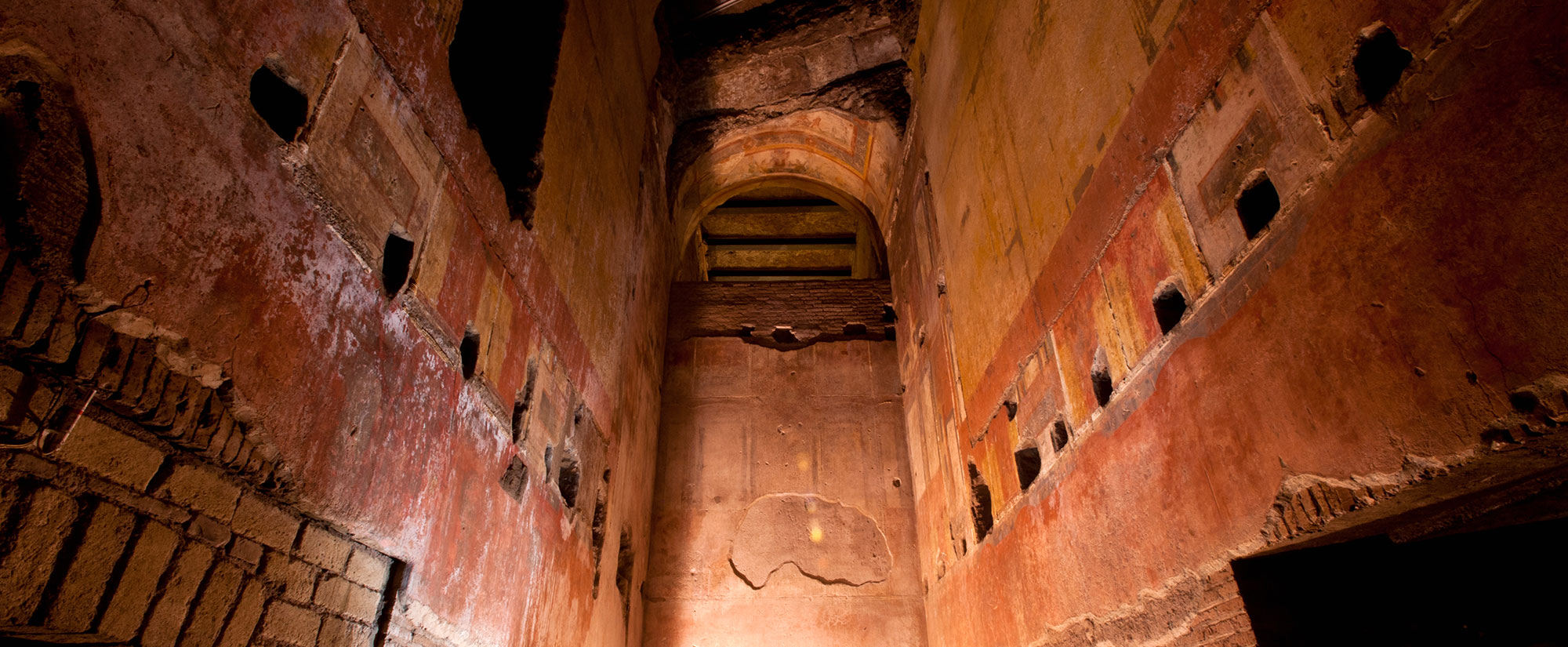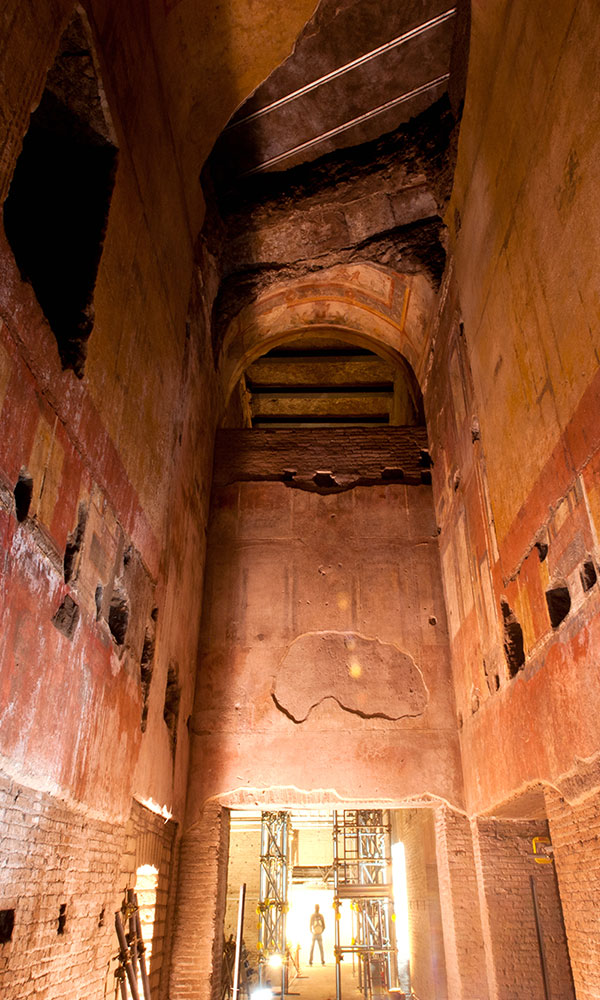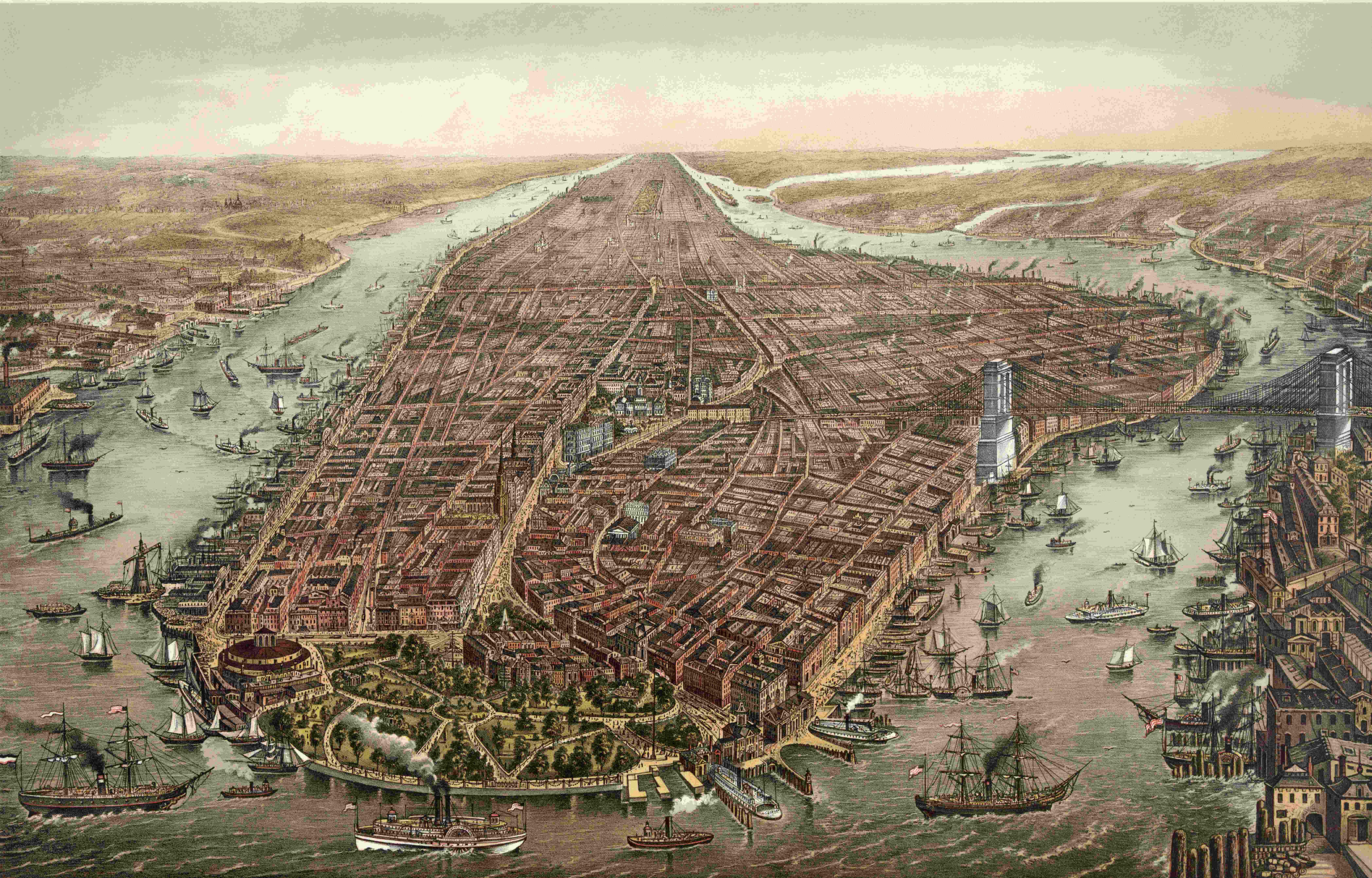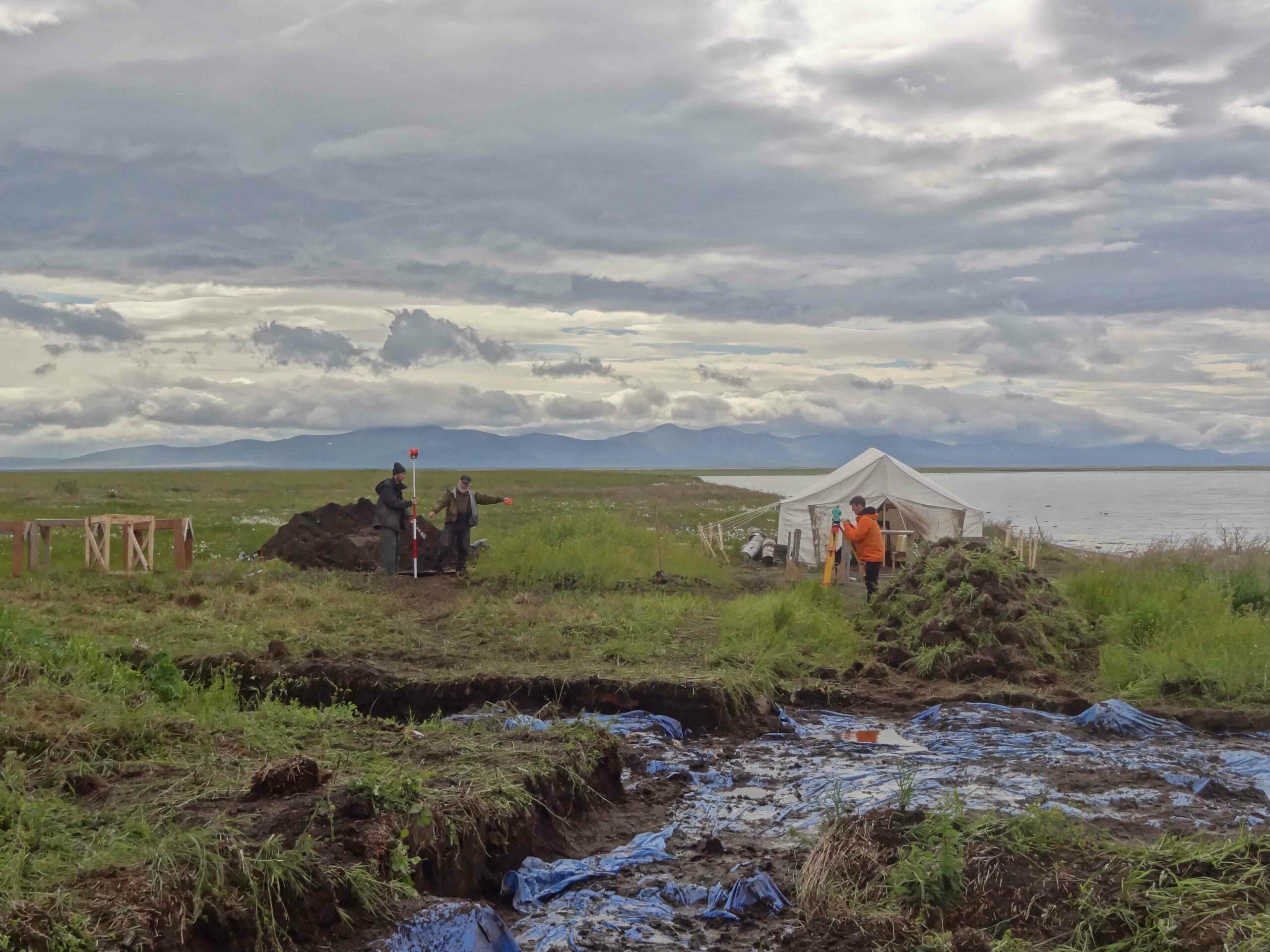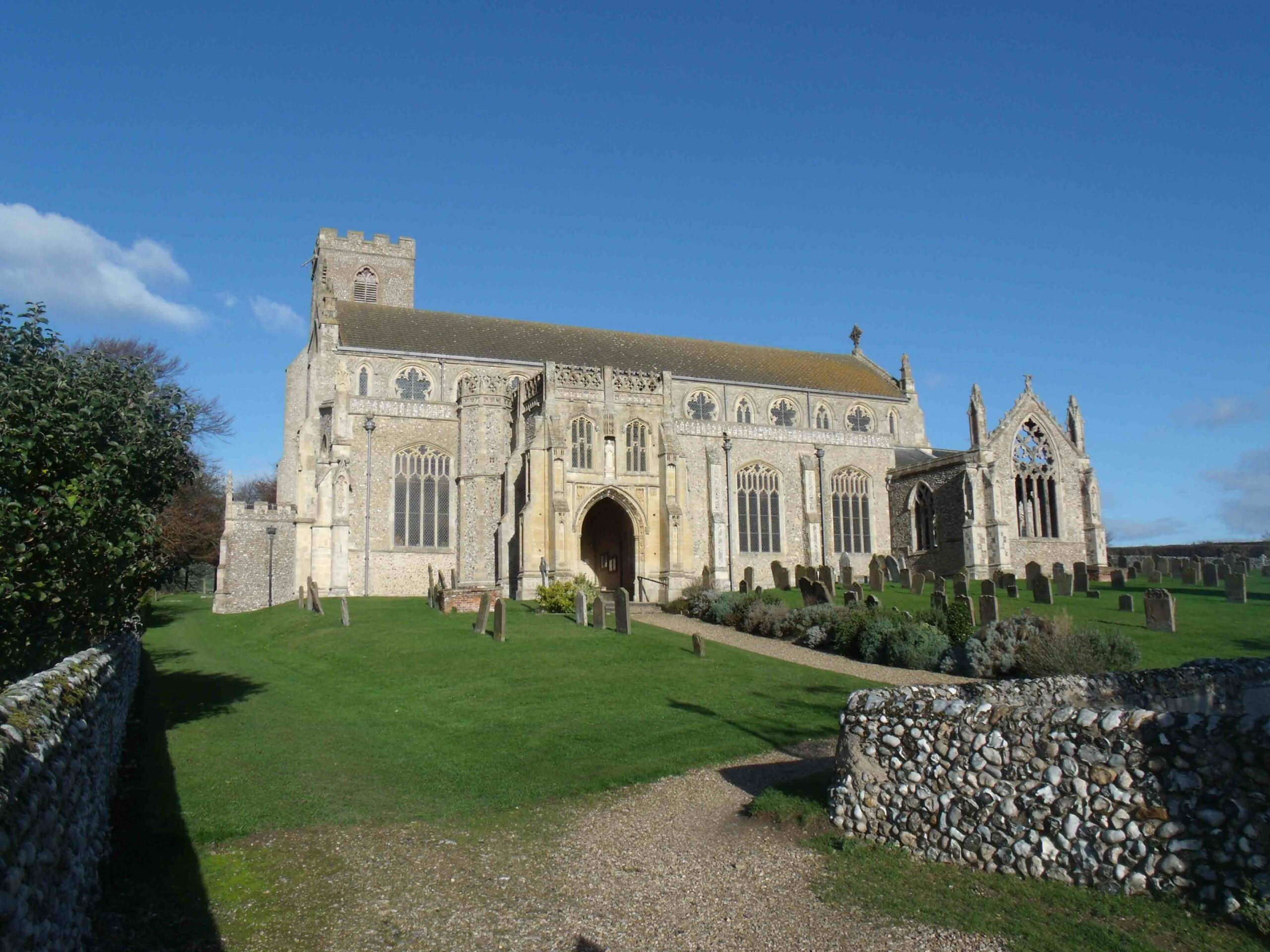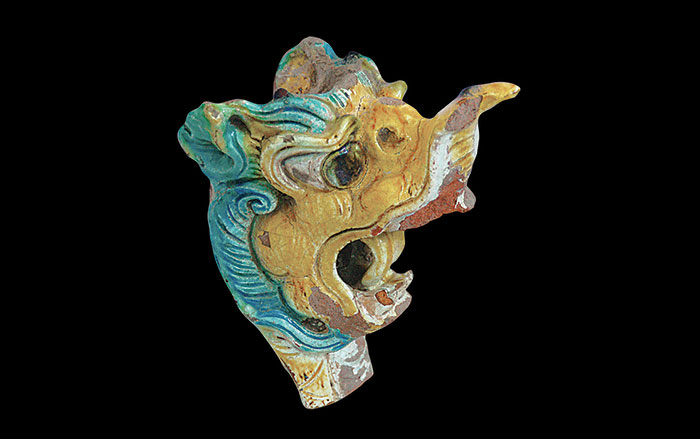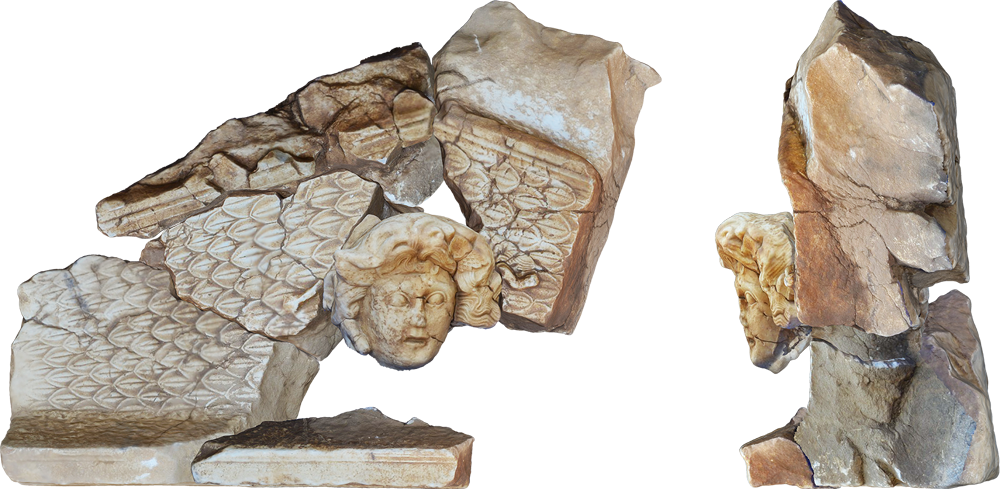
LINCOLN, NEBRASKA—A sculpture of Medusa’s head has been unearthed in southern Turkey at the first-century Roman site of Antiochia ad Cragum. The marble carving was part of a pediment that may have stood in an ancient temple that was smashed during the Christian era. “These things were meant to be destroyed and put into a lime kiln to be burned and turned into mortar,” excavation director Michael Hoff of the University of Nebraska-Lincoln told Live Science. The recovered fragments of the pediment were reassembled using 3-D photogrammetry techniques. The excavation team has also found the remains of a bouleuterion, or city council house that may have also served as a theater; colonnaded streets; shops; and a poolside mosaic at the site. To read about mosaics unearthed in Turkey dating to this period, go to "Zeugma After the Flood."






